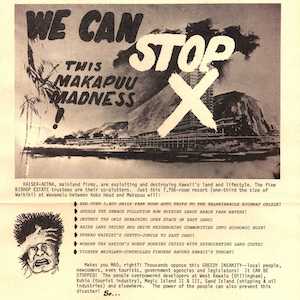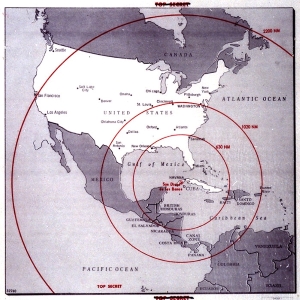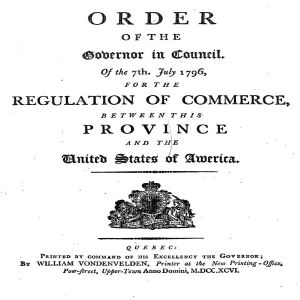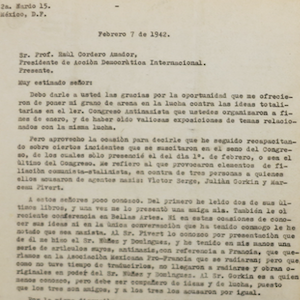North/Central America

Maya Vase with Mythological Scene, 7th-8th century
This drinking cup shows the aging Rain God Chank with a ceremonial ax in one hand and the other on a building that has split open.

Maya Monument with glyphs, 4th-9th centuries
This stone monument carved with glyphs comes from Tortuguero, a Maya archeological site in southernmost Tabasco, Mexico that has been badly damaged by development. The monument is in a museum in Tabasco, and the smaller fragment is in the Metropolitan Museum in New York City.

"We can stop this Makapuu madness!"
After World War II, the rise of jet travel and mass tourism brought new visitors—and new pressures—to many places within the Pacific Ocean. Hawaiʻi is a prime example of how tourism-driven development and activist responses have shaped local environments.

Heading of east portal Tunnel No. 8
In the late nineteenth century, multiple transcontinental railroads were built across the United States and Canada. These were Pacific projects twice over: Each railroad aimed to open new routes for global trade with Asia, and each depended heavily on Asian laborers for their construction.

Short Teaching Module: History of the Pacific Ocean
Scholars of Pacific history explore how people build lives dependent on the ocean, how maritime connections create communities, and how humans and the environment shape each other.

Map of the Range of Nuclear Missiles in Cuba, 1962
Marking one of the most dangerous periods of the Cold War, the Cuban Missile Crisis began on October 16, 1962, when U.S. national security advisors alerted President John F. Kennedy that a Soviet missile base was under construction in Cuba.

Quebec Order, 7 July 1796
Only a few years after the ratification of the United States Constitution in 1788 and following the peace treaty signed between the U.S.

Kansas-Nebraska Act, 1854
By the 1850s, tensions in the United States were falling in around a major issue: slavery. As the country expanded relentlessly westward and more territories and states were coming into existence, the question of slave states versus free states grew in its intensity.

Antifascism and Leftist Politics
In February of 1942, in the middle of World War II, the Mexican feminist, educator, and archaeologist Eulalia Guzmán wrote to Raúl Cordero Amador, president of the organization Acción Democrática Internacional (International Democratic Action).
